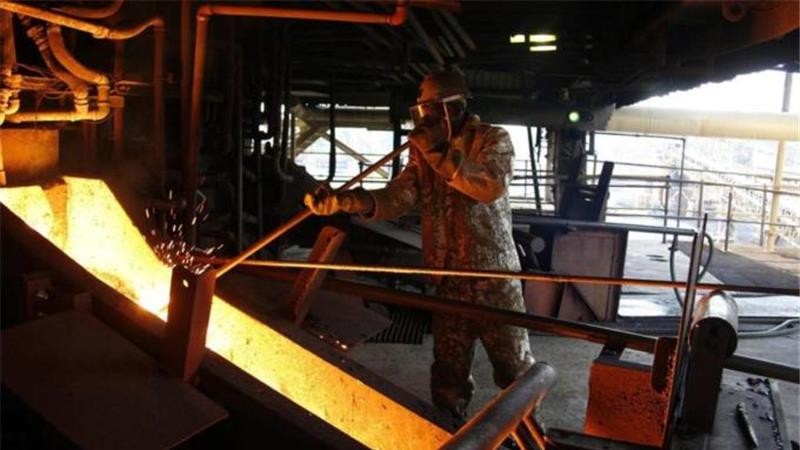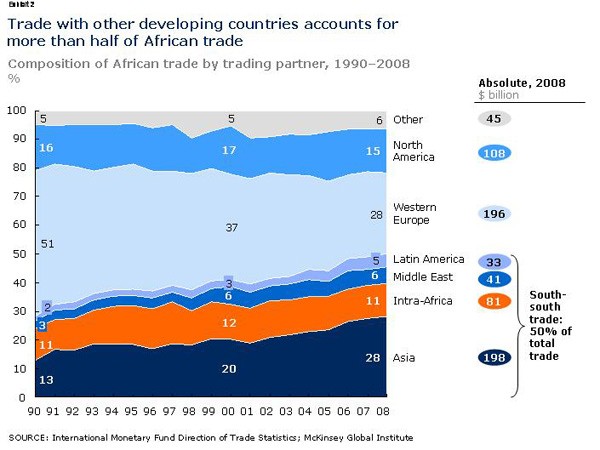Africa could do more to cash in on commodities boom
Post on: 16 Март, 2015 No Comment

JOHANNESBURG (miningweekly.com) Africa has so far failed to benefit much from the commodity price boom, but opportunities were still there, a report compiled on behalf of the United Nations Economic Commission for Africa (UNECA) stated.
The commodities boom offered the chance to increase tax revenue at the very least, the Minerals and Africas Development report stated, and said that governments of African mineral countries had the opportunity to negotiate more favourable licencing and tax regimes.
African government could even consider equity participation in mining ventures or new State entities, but the report stressed that these had to operate commercially and in competition with private firms.
The report, compiled by UNECAs International Study Group, stated that the continents mining industry still resembled an enclave in the global economy, but that a new direction was being sought through the Africa Mining Vision (AMV).
The AMV was conceived in preparation for the first African Union Conference of Ministers responsible for mineral resources development in 2008.
Most of the industry had weak links with the rest of the national economies, while the mines ownership and operation were still largely in the hands of foreign companies. Most of the minerals were exported in raw form and the industry imports most of its inputs from abroad.
The report argued that the enclave mineral economy was a colonial legacy that post independence resource nationalism failed to redress. Subsequent World Bank-promoted reforms, which were designed to attract foreign private risk capital, eliminated the States direct role in production and further entrenched the enclave economy.
This led to the search for a new approach in which minerals could assist the development approach of nearly all African countries, which accelerated after the start of the commodity-price boom around 2002.
The central premises of the report and the AMV were that mineral operations must constantly be re-evaluated for its contribution to broad and long-term development goals; that mineral operations need not and ought not to be enclave activities; and that restructuring African mining from its enclave nature was the fundamental task of African policymakers and those committed to having it play a transformative role.
Further, optimising the mineral linkages needed a conscious policy approach.
The report found that upstream, downstream, sidestream and lateral minerals migration linkages were not well developed, apart from transport and energy, reflecting the industrys main orientation which was to extract and export bulk minerals to overseas markets.
However, there were obstacles preventing such linkage strengthening, including large infrastructure deficits, which impeded the movement of goods and services; weak African markets for minerals products, which reflected the overall low level of Africas industrialisation; technological deficiencies and wide skills gaps.
But the report warned that improved linkages would not come about or help just because Africa had world-class mineral deposits. Strengthening linkages requires the right policies and strategies to leverage mineral extraction and processing operations into broader economic development outcomes, it stated.
For example, countries had to pay more attention to the minerals that offered greater possibilities for national and regional industrial development and had to invest in economic infrastructure, particularly in power and transport.

Policymakers need to maximise the beneficial spill over effects of infrastructure triggered by mining through resource corridors.
The report stressed that planning had to explore collateral or integral use by other economic sectors and that third-party access had to be allowed at nondiscriminatory tariffs.
Further, artisanal and small-scale mining (ASM), which is prevalent in Africa, could be better integrated into the mainstream of economic life, particularly in rural areas.
It suggested that the policy environment should encourage cooperation between small- and large-scale miners, including converting ASM into viable operating enterprises.
More broadly, the effects on climate change of mining needed greater attention from governments and companies. The report said governments should strengthen the frameworks that govern impact assessment, management and regulation. They should also enhance the capacities and effectiveness of regulatory agencies and improve the culture of how these institutions interact with citizens, especially those affected by mining.
Improved impact assessment and better planning and coordination between governments and mining firms in compensation, resettlement and relocation projects for alternative livelihood opportunities would help reduce conflict with communities, while strengthening the corporate social responsibility of mines would go a long way in contributing to the socioeconomic growth of mining communities.
The report also pointed to increased regional cooperation and integration as being able to provide development opportunities by sharing capacities and by supporting the movement of factors of production across borders.














